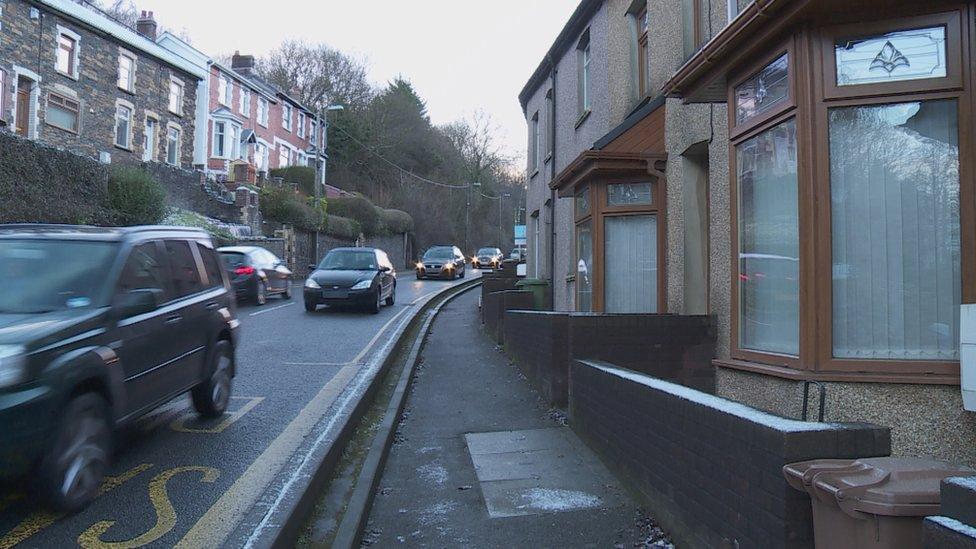Air pollution Wales: Clean Air Plan proposes tougher limits
- Published
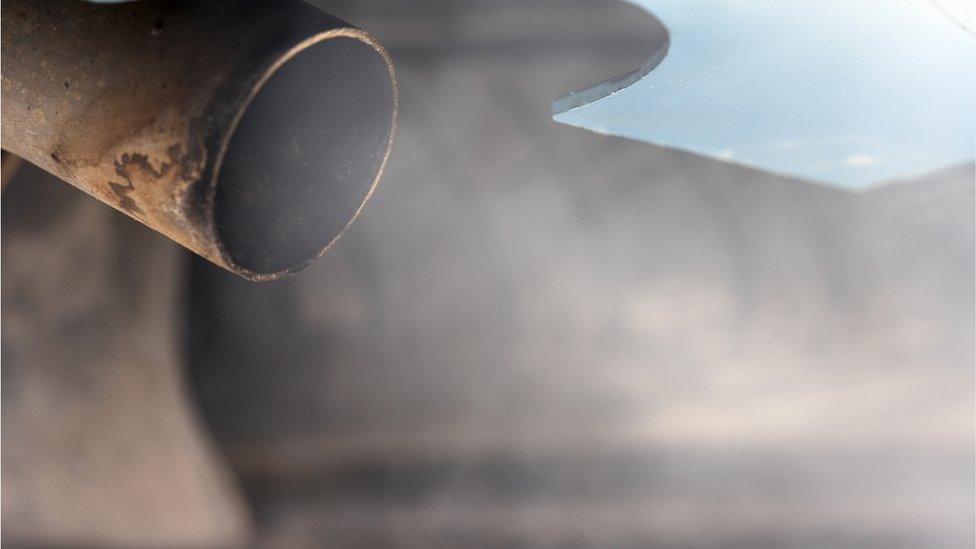
As many as 1,400 people in Wales are thought to die from illnesses caused by air pollution each year
Tougher limits on levels of air pollution are proposed to tackle a problem thought to contribute to as many as 1,400 deaths a year in Wales.
It is one of a range of actions set out in the Clean Air Plan, including that buses and taxis should be electric or hydrogen powered by 2028.
Environment Minister Lesley Griffiths said "very radical" change was needed.
Clean air campaigners welcomed the announcement but called for swift implementation of the plan's proposals.
"This is a first step, we need to focus on delivery and urgent action now," said Haf Elgar, director of Friends of the Earth Cymru, adding that levels of air pollution in Wales were a "disgrace".
'Vulnerable suffer the most'
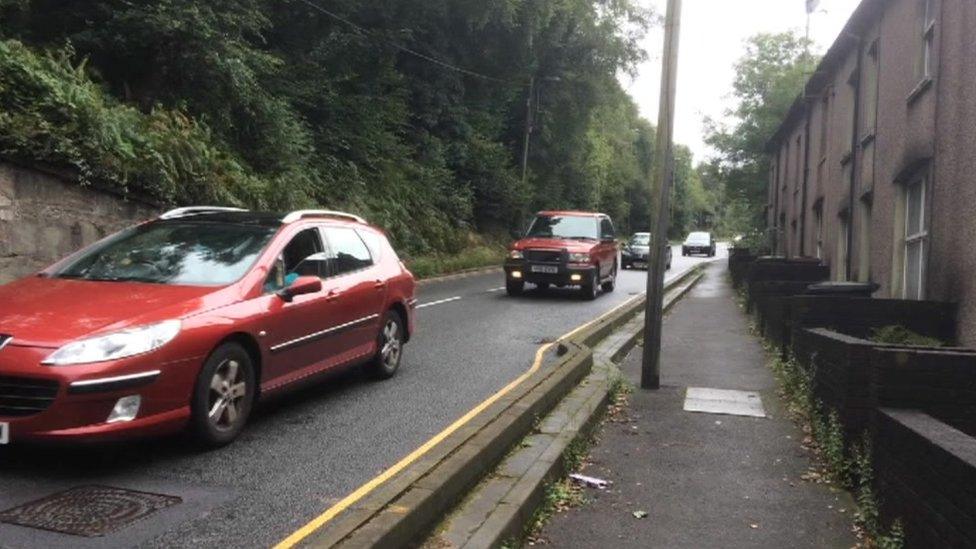
Recorded levels of nitrogen dioxide on the A472 at Hafodyrynys were higher than anywhere else in the UK apart from central London in 2015 and 2016
The pledge to review pollution levels considered acceptable in the air we breathe is a win for campaigners, who have been calling on the government to go beyond current EU limits and follow World Health Organisation (WHO) guidelines.
The WHO is set to revise its targets in September and Ms Griffiths said the government would then "fit them into our policy too".
"We have to make them tougher as we know it is the most vulnerable that suffer most - though better air quality will benefit all of us," the minister said.
This would require a new law - a Clean Air Act - which the government had hoped to pass before the Senedd elections in May, but now says will have to wait.
What else is in the plan?
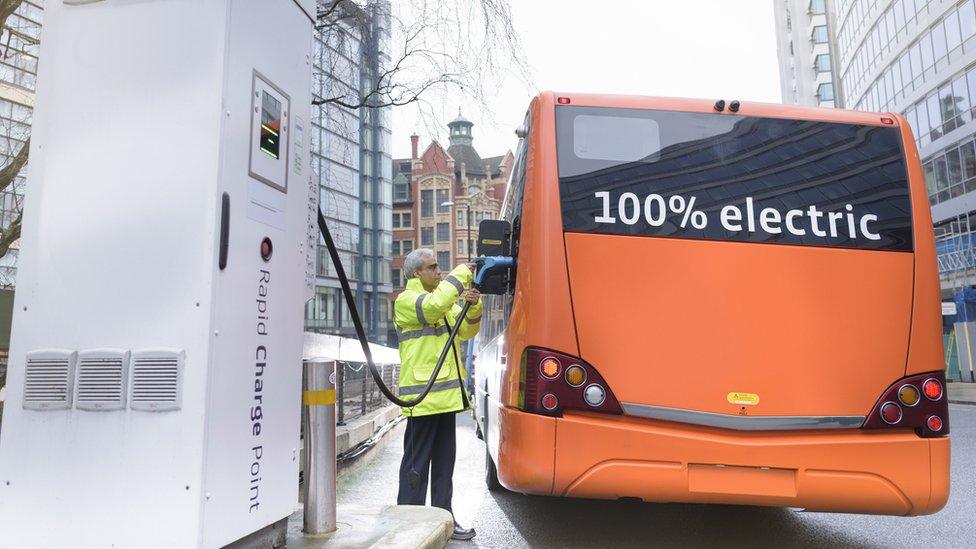
The plan is broadly similar to a draft version consulted upon in December.
Many measures require additional work - such as investigations into the potential for clean air zones and road charging.
A review is also being carried out into the powers local authorities have to tackle emissions from domestic burning, including potential restrictions on certain fuels like wet wood or older wood-burning stoves.
Significant investment in electric vehicle infrastructure is promised, and a shift to low-emission vehicles for waste collection.
The plan also promises "intelligent tree and hedge planting" schemes to soak in emissions.
How has lockdown affected air quality?
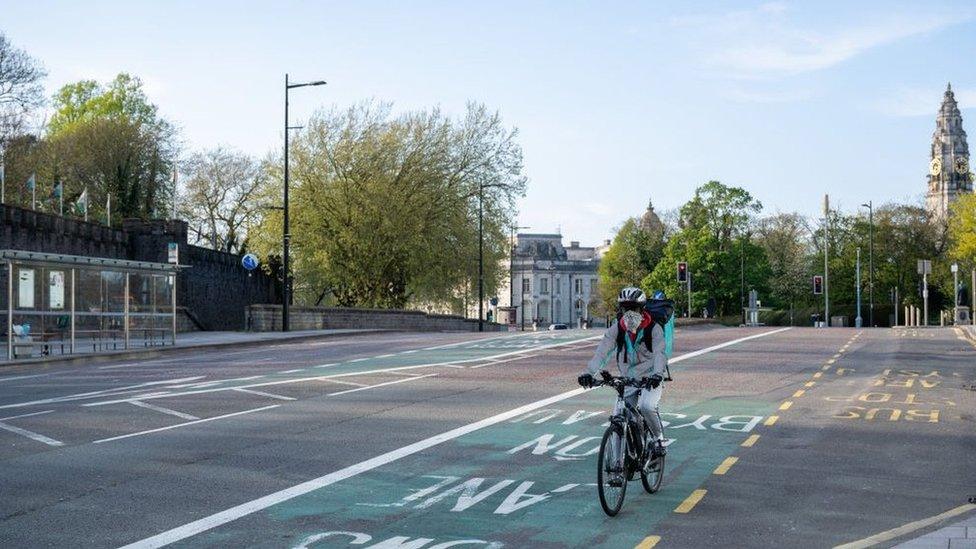
There is "clear correlation" between lower traffic levels and reduced pollution, the report concludes
Published alongside the plan is a provisional analysis of how air quality in Wales has been affected by the coronavirus lockdown.
It suggests that between the start of lockdown on 16 March and 31 May, emissions of nitrogen oxides, which can be harmful to health, were almost half the expected levels.
Analysis of traffic data showed a "significant drop" in vehicle flows, mostly of cars, light vans and buses, with the report concluding "clear correlation" between traffic levels and reduced pollution.
Ms Griffiths said the different habits people had adopted during lockdown presented an opportunity to improve air quality.
"We've seen much more walking, cycling, people working from home and not having those long car journeys to work. Clearly that has had an impact."
'New world is possible'

Castle Street, one of Wales' most polluted roads, has been pedestrianised and turned into an al fresco dining area
Sustainable transport experts say temporary measures introduced to aid social distancing in parts of Wales should be made permanent.
"We want our cities to stay clean," said Dr Ian Taylor, of Transport for Quality of Life.
"Where there have been lanes given over to walking and cycling, they should be kept.
"It is for the public to show their support and back the government in doing the right thing because, after Covid, it's almost as if somebody has thrown a switch.
"The public, policymakers and politicians all realise now that a new world is possible - one that's better for the environment and better for us."
- Published7 July 2020
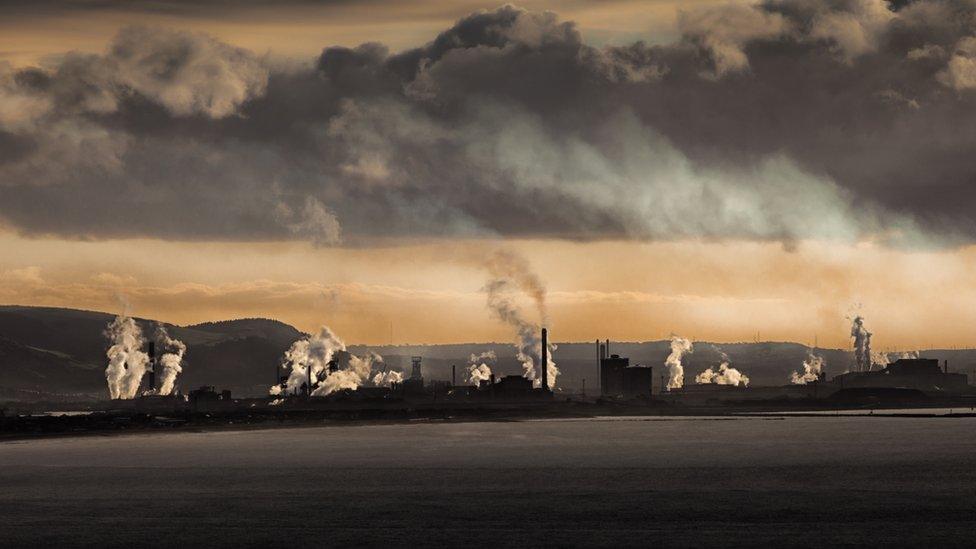
- Published1 April 2020
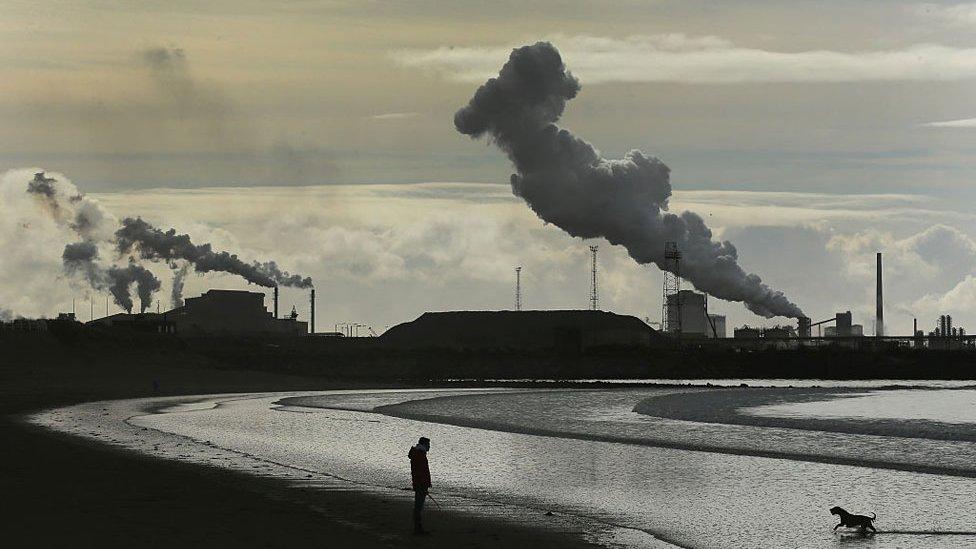
- Published27 January 2020
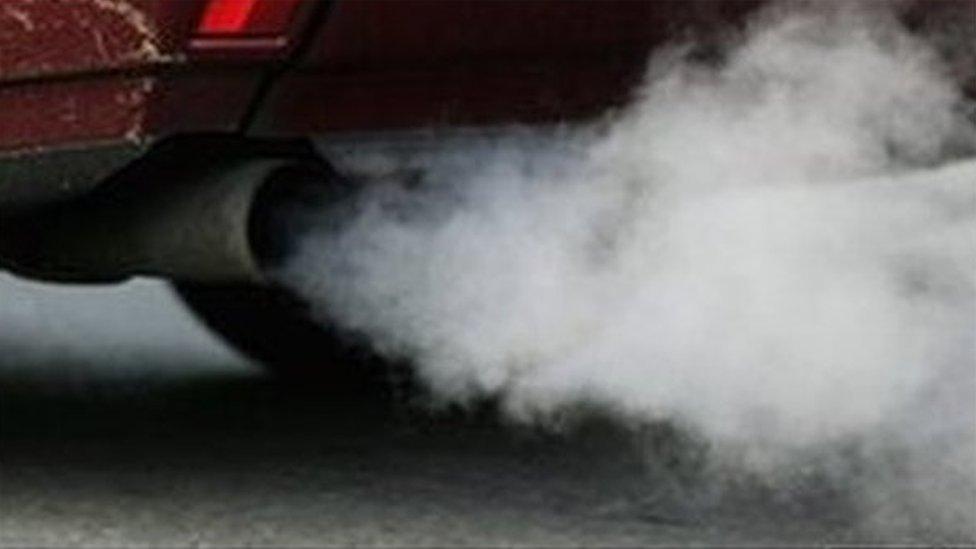
- Published10 December 2019
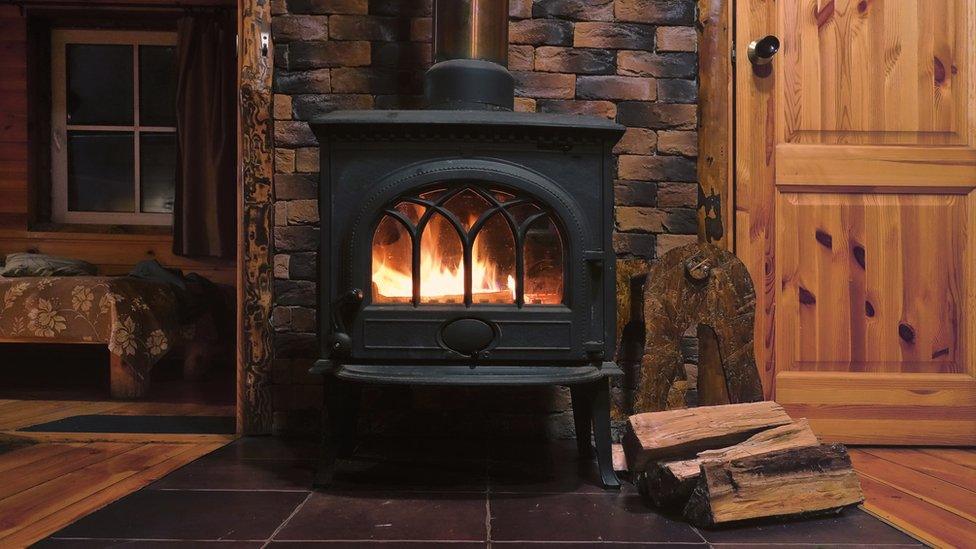
- Published10 December 2019
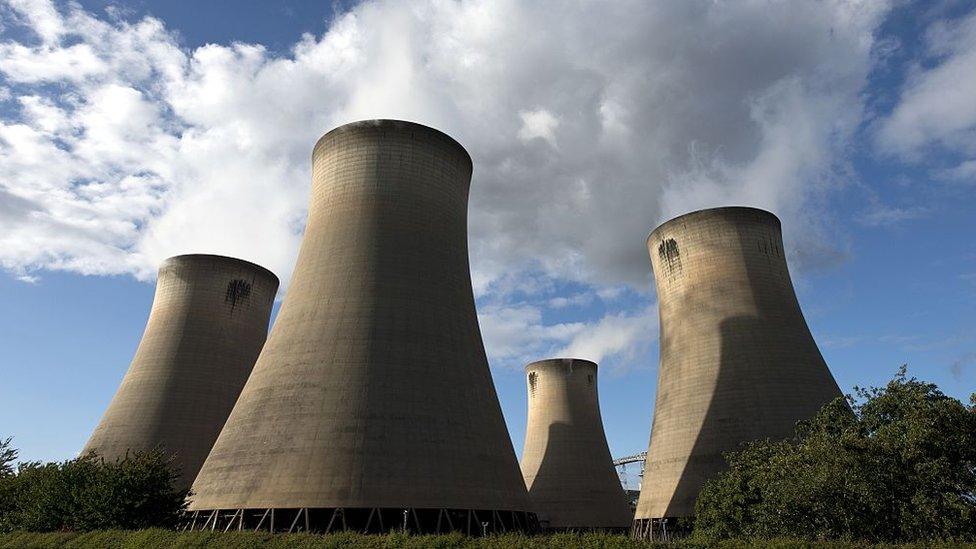
- Published25 September 2019
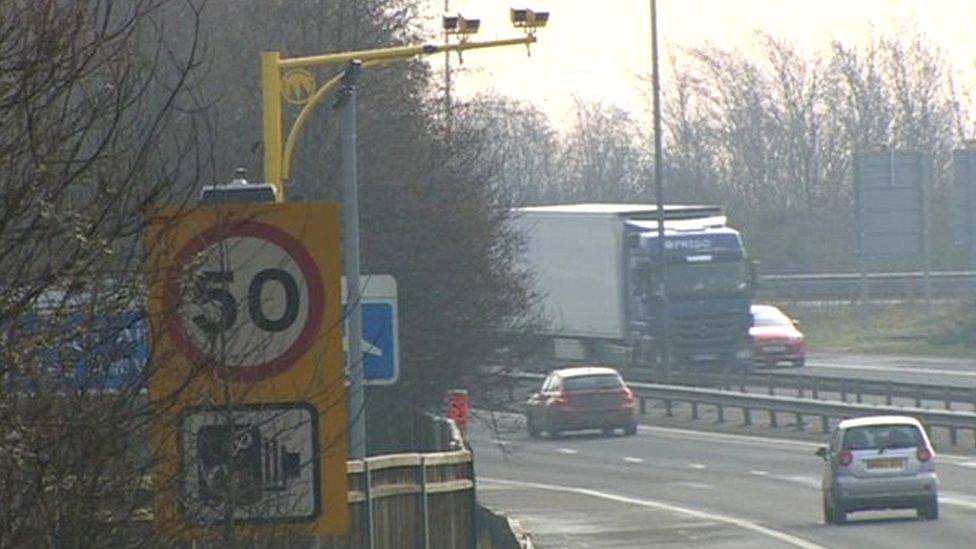
- Published20 June 2019

- Published24 July 2018
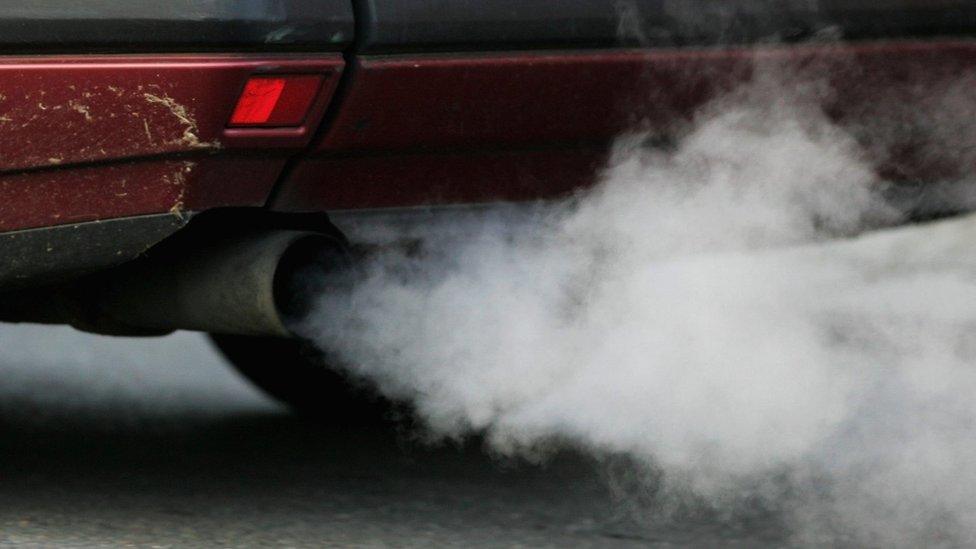
- Published21 February 2018

- Published8 March 2017
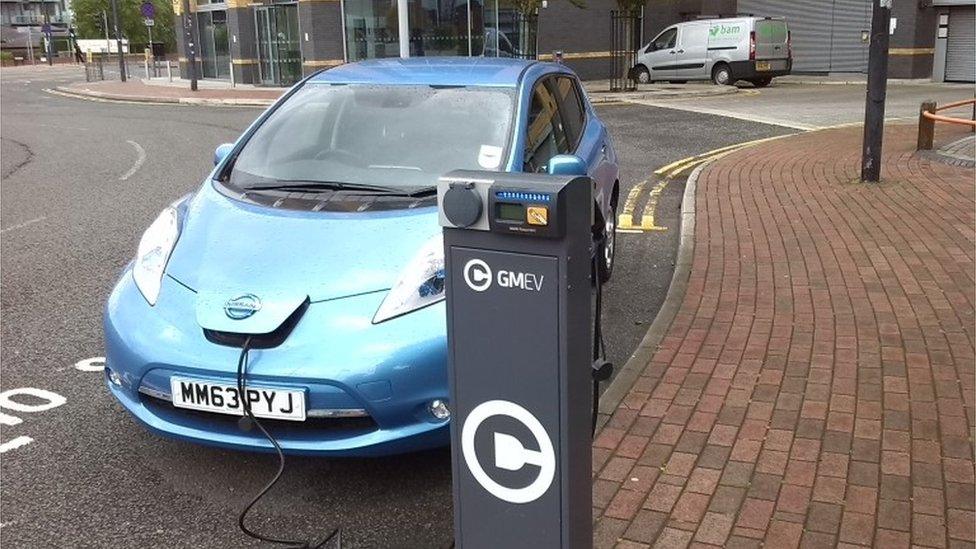
- Published7 March 2017
